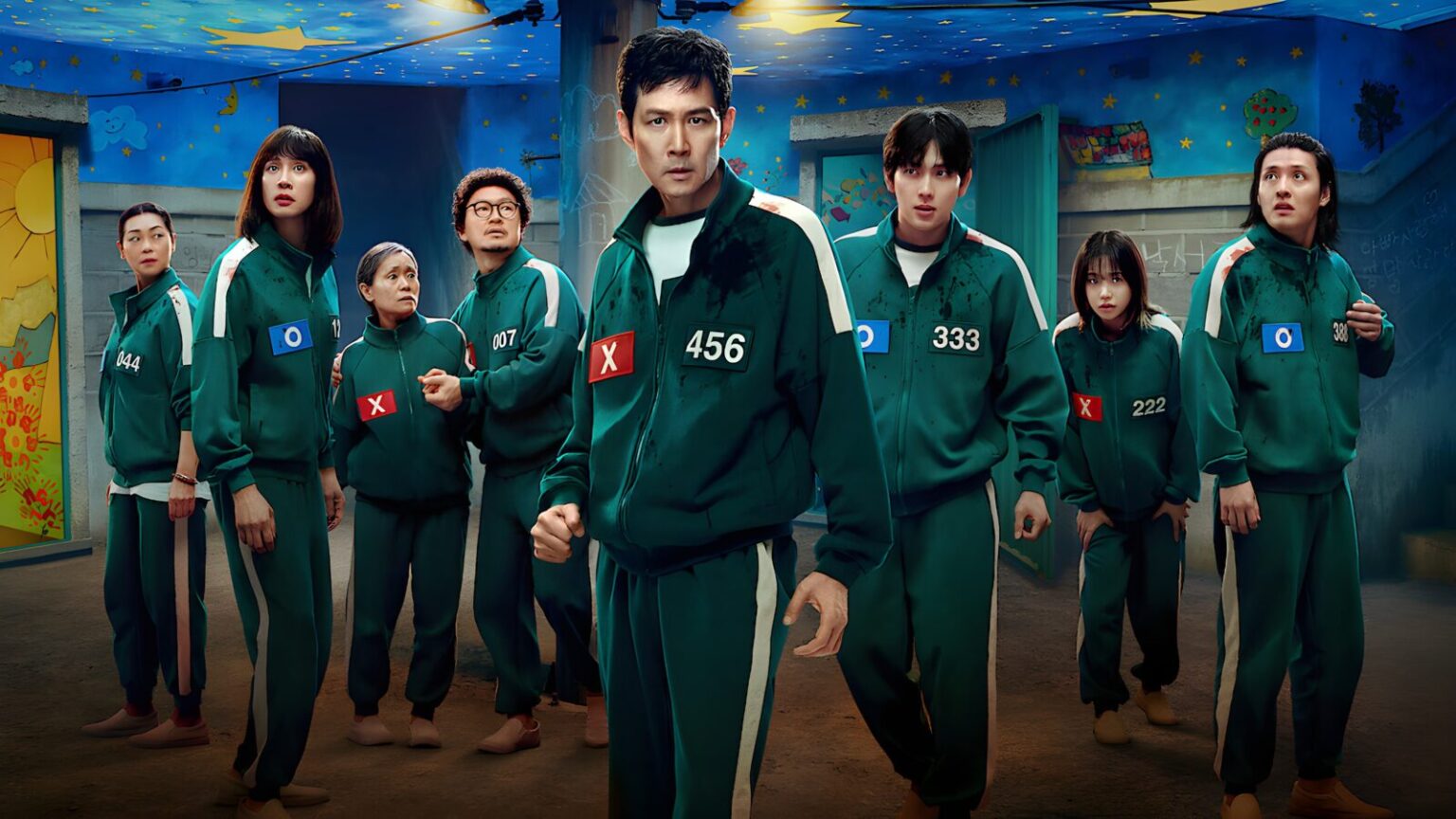I’ll admit it: when Netflix greenlit Season 2 of Squid Game, I rolled my eyes so hard I nearly dislocated them. Season 1 felt complete in its bleak brilliance—an allegorical punch to the gut wrapped in children’s games and economic nihilism. But then Season 2 landed like a half-finished script; it sprawled and drifted, feeling like a grim interlude rather than a necessary next chapter. So, imagine my surprise when Season 3 roared in, snatched the entire franchise by its lapels, and reminded me why Squid Game became a global phenomenon in the first place.
Squid Game Season 3
This final installment doesn’t just return to form—it outdoes itself. Where Season 1 was ruthless, Season 3 is downright savage. Deaths here aren’t just shocking; they’re tragic, devastating, and tinged with moral rot. Characters make choices so horrifying you almost want to turn away, but you can’t, because by now these people are more than players in a sadistic game. They’re fractured, desperate humans you’ve spent two seasons living beside, and watching them unravel hurts in a way Season 2 never quite achieved.
Yet, for all the twisted games and escalating violence, Season 3 proves something crucial: Squid Game has never really been about the games themselves. Sure, there’s a new marbles-level round that’s as tense as anything the show has produced, but what lingers isn’t the spectacle. It’s the quiet scenes—Gi-hun slumped in exhausted grief, Jang Geum-ja’s heartbreaking monologue as a mother who gave up her life for a son who never deserved it. Kang Ae-shim delivers the single best performance of the series here, elevating her character from pitiful elder to tragic icon in a handful of scenes that left me staring blankly at the credits.
Other newcomers rise to the occasion too. Yo Ju-ri’s pregnant Jun-hee adds flickers of hope and horror, while Park Sung-hoon’s Hyun-ju, a trans former special forces soldier, steals every moment with an unbreakable dignity that the show respects rather than exploits. Even the season’s more sinister figures—Im Si-wan’s oily Myung-gi and Roh Jae-won’s unrepentant Nam-gyu—crackle with vicious charisma, their final fates feeling both inevitable and cathartic.
But it’s not flawless. The return of the VIPs remains Squid Game’s greatest tonal misfire. Their cartoonish villainy, paired with wooden delivery and gauche Western stereotypes, feels as jarring here as in previous seasons. It’s like accidentally switching to a bad SNL parody mid-episode—mercifully brief but painfully memorable.
Still, none of this derails a finale that lands every emotional note it attempts. The ending is both unsettling and satisfying, wrapping up Gi-hun’s arc with finality while hinting (unfortunately) at future spinoffs abroad. Because yes, Squid Gamehas become too lucrative for Netflix to let it die gracefully. But in a way, that’s the ultimate punchline to Hwang Dong-hyuk’s savage thesis: greed is infinite, and human suffering is endlessly marketable.
Final Verdict: Squid Game Season 3 isn’t just a return to form—it’s a brutal, brilliant finale that reclaims everything this franchise does best. Its games are savage, its deaths are gutting, and its humanity burns with a desperate, unforgettable glow. If this is truly the end, it’s a damn good way to go out.





